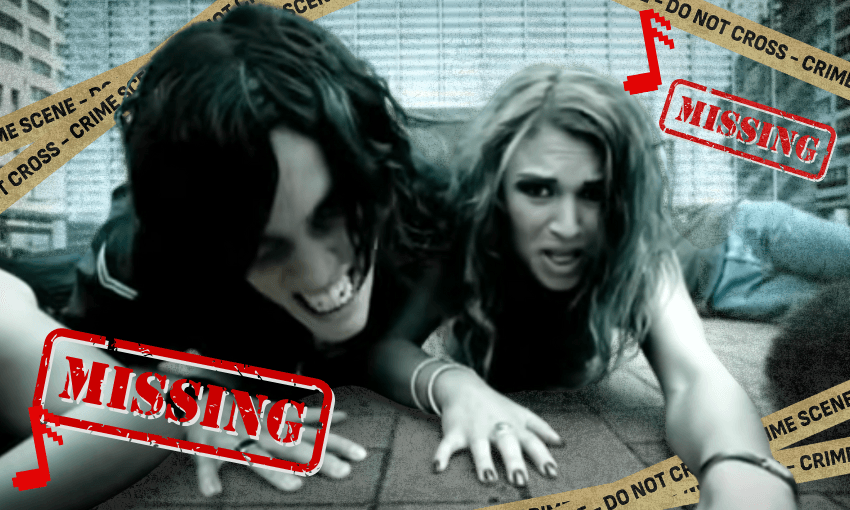The most anticipated local reality show of 2021 has crowned its Popstar, and after a rocky road, it feels just right.
Last night, as confetti rained down on a newly minted winner, one thing was clear: Popstars got its Popstar. After 26 episodes, New Zealand has the successor to TrueBliss. It’s Christabel Williams, 20, with newly dyed red-hair and a voice that recalls Adele by way of the Harbour Bridge.
On reflection, Christabel’s win should’ve been clear. She’s simply the most ready to be the winner of Popstars (which is distinct from ready to be a popstar). While she definitely struggled throughout the competition, she peaked at exactly the right time, and her debut single was at #1 on the iTunes Chart when the finale went to air. There’s no doubt it’ll get huge airplay, and when I said last week that it will be Shazamed in K-Mart, I meant it warmly. After all, you have to be heard to be Shazamed.
The rest of the final four weren’t lacking for talent, not even close. There’s something that feels premature about crowning Skye Hine, 16, as the winner. No teenager should have to carry the burden of being a capital P-Popstar, no matter how talented. TJ Zimba (Zexii) is destined to produce for names that are bigger than this series could ever be. A.R.T, who felt like the frontrunners for most of the competition, will be a success with or without the title. The Powerstation went absolutely off for them, and they’ve got a handful of radio friendly songs ready to go.
Christabel’s readiness was even more clear when she came down to talk to media mere minutes after winning. She was emotional, but not overwhelmed. Poised but not distant. In 2021, we want our popstars to be relatable but still exist on another level to us. Christabel strikes that balance, seemingly without even trying. It wasn’t that she knew she was going to win; it’s more that she was absolutely ready to win. Sometimes half the ball game is being ready to step up to the plate at the right time.
What does this mean for Popstars the series, though?
This series had to live up to the long, broad shadow of its predecessor, and do so while being in a completely different format, and existing in a completely different landscape. After a rocky start, I think it finally stepped into its light. Once the show whittled itself down to a top 12, and started to focus on molding their talent into stars, we started to get invested in it. The panel improved – their criticisms felt not just pointed but correct – and settled into their role of supporting the show rather than leading it. Sure, it wasn’t the cultural phenomenon the original was, but the people who were invested in it were truly invested. If you know who Christabel is, you have an opinion on her and what her win means.
The sheer amount of output the series had is the biggest barrier for an audience. Three episodes a week – an episode of prep, an episode of performances and then an elimination – can quickly become too much. The weekly structure was the most upsetting in these last two episodes. The necessities of the format rejig meant that there had to be some space between the singles going out and the winner being chosen, but to have the last episode feel like a reunion with a crowning on top of it did a disservice to the series on the whole. Christabel, or any winner, deserved a bit more space to breathe than a confetti drop, a title card, and a sudden cut to Patriot Brains featuring Bill Bailey.
There’s one huge thing that sets it apart from its predecessor, if you strip away the superficial changes: this Popstars feels like a symbiotic relationship between format and talent; each moulding the other. The first Popstars felt like an act of creation. TrueBliss would never have happened without Popstars, and the wide-eyed, clenched fist, determination of Peter Urlich. On the other hand: Christabel would have happened without Popstars. Her road might’ve been different, but she still would have made it eventually (albeit maybe with $100,000 less in her pocket).
That feels like a footnote, though. Popstars achieved that rare thing in a competitive reality show: it picked the right winner. What will be interesting is to see what happens next, for both winner and series. Some winners like Kelly Clarkson go onto to be bigger than the show that made them, while others never escape what Stan Walker and many more talent show competitors have described as “the winner’s curse.” In Christabel, we got a winner whose songs you can sing right back at her, whether you’re hearing it onstage, on your phone, or over the tinny speakers in the mall. If you ain’t looking, you should be.



